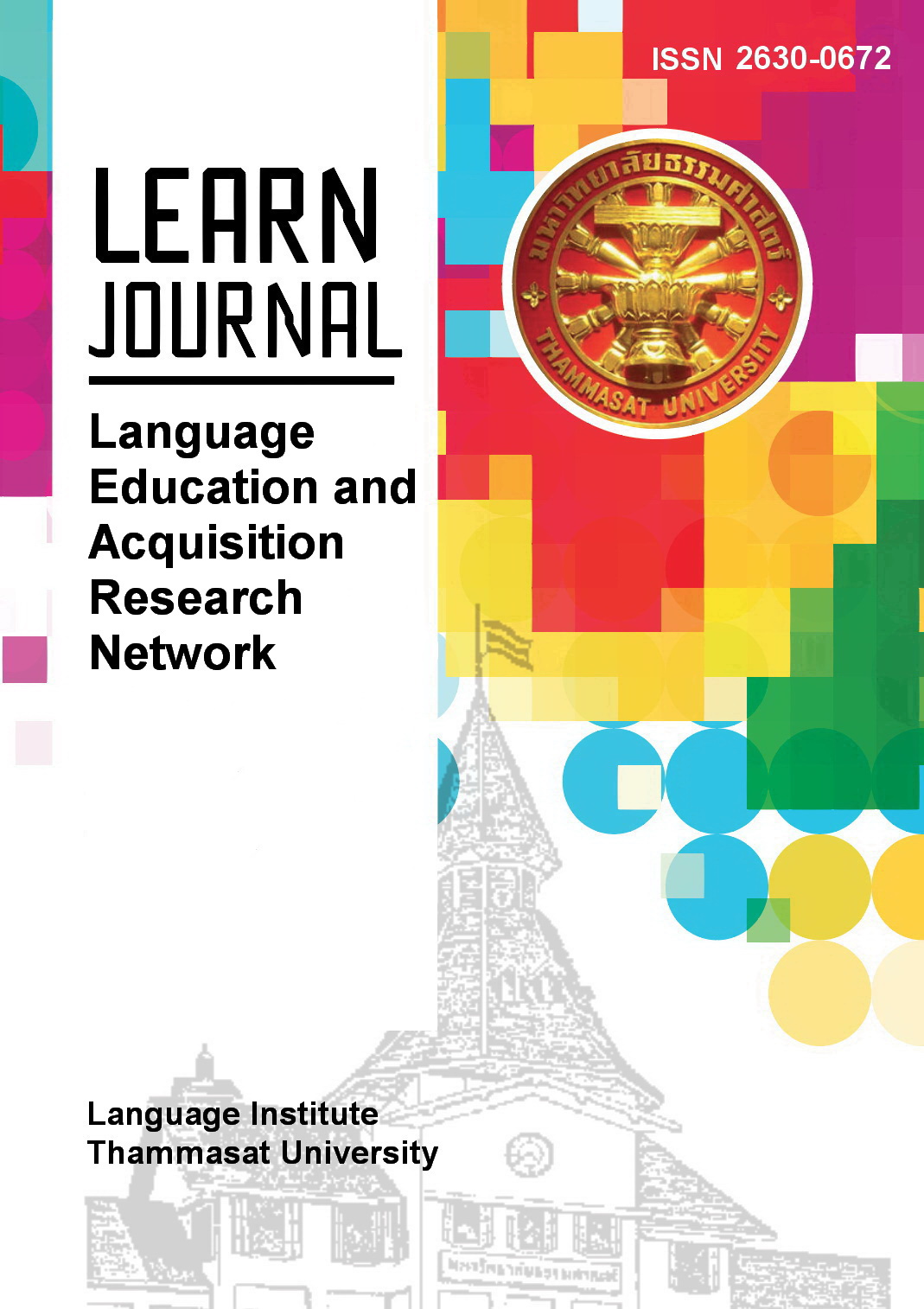Autonomy-Supportive English Language Instruction: An Experimental Study on Students’ Motivation in English Language Classrooms
Main Article Content
Abstract
The present study aimed at exploring the effects of Autonomy-Supportive English Language Instruction on students’ motivation in English language classrooms, and aimed at investigating students’ opinions toward Autonomy-Supportive English Language Instruction. The participants were 25 eleventh grade students, which were selected by purposive sampling. The research instruments were students’ self-report motivation in English language classrooms questionnaire, and students’ opinions toward autonomy-supportive English language instruction interview questions. The results revealed that students’ motivation in English language classrooms increased significantly after receiving Autonomy-Supportive English Language Instruction. In addition, students also had a positive opinion of Autonomy-Supportive English Language Instruction in terms of motivation in learning English in the English language classrooms, teaching practices in the English language classrooms, and the teacher’s motivation in teaching. The findings suggested that as Autonomy-Supportive English Language Instruction is considered highly effective, it should be applied to teaching students in other levels and study programs. In addition, since this type of instruction is not attached to any specific skills or teaching methodology, further study can be applied to teaching specific skills of English or integrating into the specific English language teaching methodology in order to investigate its effectiveness.


